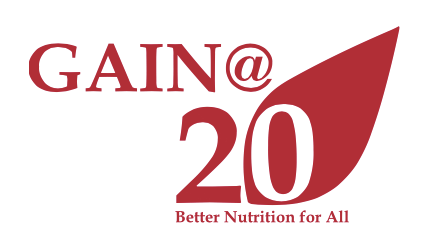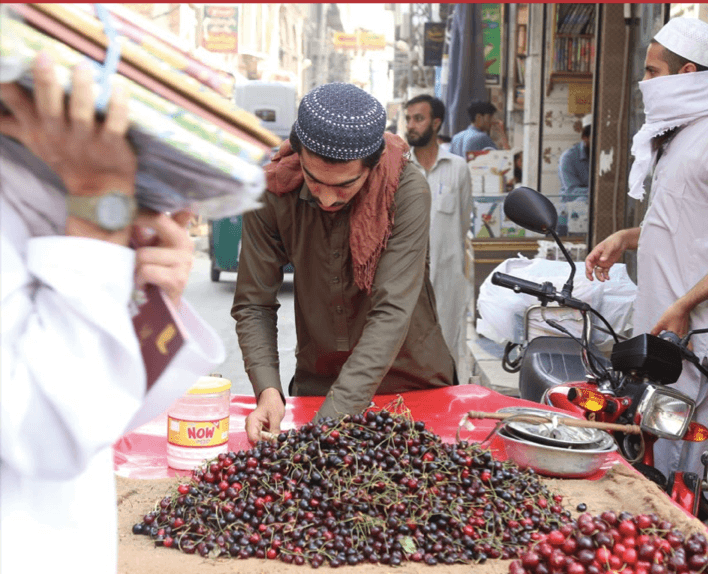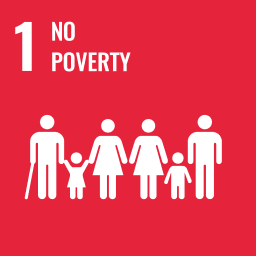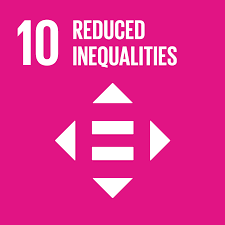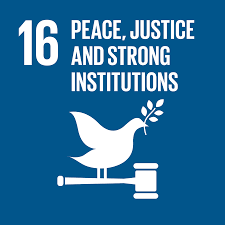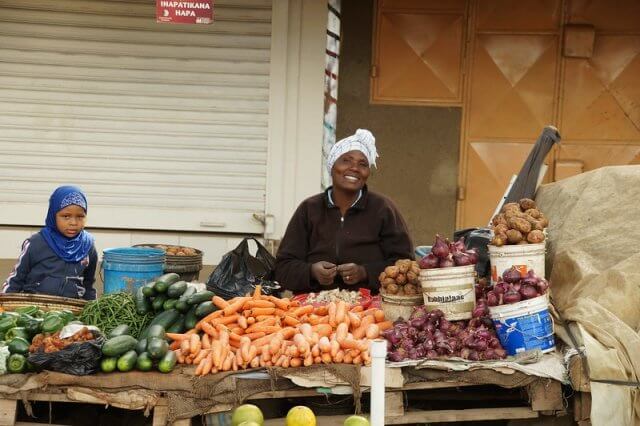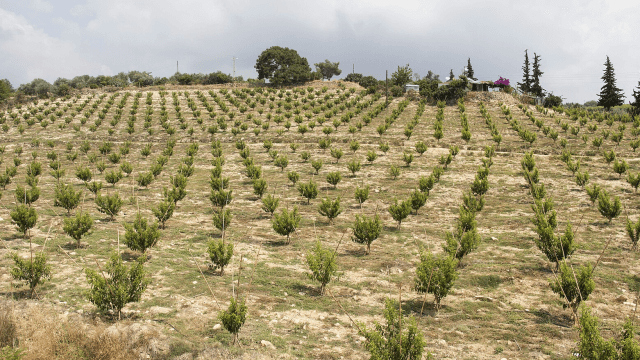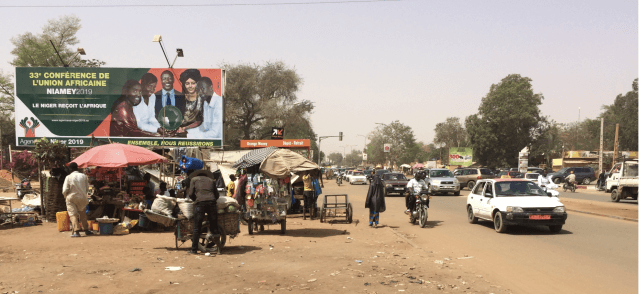The action and its aims
GAIN’s aim was to empower market stakeholders, enhance municipal food policymaking – and, ultimately, ensure the most vulnerable local people had access to nutritious food. The initiative involved in-depth engagement with local stakeholders – who were empowered to co-design food policy options that could address Peshawar’s unique set of pandemic challenges and keep local markets working. The results were presented to the local government in the form of a toolkit.
Why was it needed
With around 40% of its population currently living in urban areas,1 Pakistan is the fastest urbanising country in South Asia. Something of an economic success story, 23 million of its people have been raised out of poverty in the last 15 years – a decline of 40%.2
Nevertheless, poverty, environmental degradation, inequality and inadequate urban planning remain very real challenges.2 With the arrival of COVID-19, the concerns were that this upward trend out of poverty for many would be reversed.3 Malnutrition statistics were already worrying. In 2020, approximately 7% of Pakistani children under five suffered from wasting and 37% from stunting.3
In early February 2020, this already precarious situation was hit with environmental disaster. A state of emergency was declared as swarms of desert locusts decimated harvests in Punjab Province, the country’s ‘breadbasket’, where a significant percentage of wheat, its staple crop, is grown.
At this time COVID-19 infections were rising. The national government ordered a comprehensive lockdown, with market closures, mobility restrictions, quarantines and border closures. As the pandemic progressed, the strategy changed, with the introduction of a series of ‘smart lockdowns’, focused on virus hotspots – to lessen economic impacts.
Located just to the east of the Khyber Pass, the city of Peshawar faced a uniquely difficult set of circumstances. Built on a plateau near the border with Afghanistan, it is a vital food trade hub. Potatoes, tomatoes and onions are imported into the city from Afghanistan, while local meat is exported over the border. The city population of almost two million people4 is mostly of the Pashtun ethnic group. With an ongoing influx of Afghans, this is rapidly rising.5
When the pandemic took hold, slums had been proliferating – meaning many vulnerable people already did not have access to clean drinking water or basic sanitation. Diseases like diarrhoea, tuberculosis, malaria and respiratory illness became widespread. 5 Children under five were shown to be especially vulnerable.5 With this converging set of crises, Peshawar almost inevitably became a COVID-19 hotspot and experienced several smart lockdowns, further impacting its residents’ health, wellbeing, food security and prosperity.
When was it introduced
In July 2020, planning for the KFMW programme began. Implementation of the policy and coordination workstream started in late September 2020. Final workshops were conducted in November 2021, when the Peshawar Policy Options Toolkit became available.
Who initiated it, who is involved
As well as local Pakistani and global GAIN teams, in Peshawar the initiative involved market vendors, women vendor groups, market committees and small and medium-sized enterprises linked to traditional urban food markets and county government policymakers.
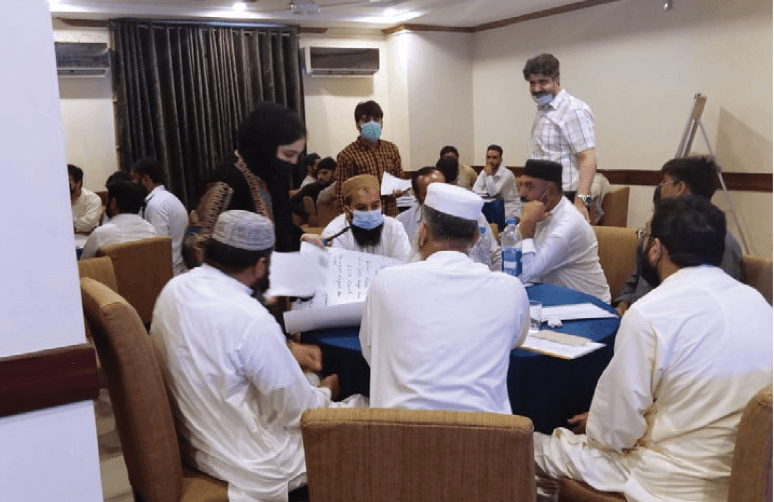
Impacts to date
The result, to date, is that the Toolkit has provided the Peshawar city government with a raft of real-world ideas for improving local food policymaking. It outlines market stakeholders’ priorities and linked policy options in seven areas, with the top three as follows:
Poor market infrastructure was identified as the priority. Policy options included the exploration of public, private and non-profit partnerships to pay for improvements.
Unsatisfactory market management and regulation was the second. Policy options included a review of market fees and an anti-corruption programme, with a free and anonymous hotline for whistleblowers. The unplanned and often chaotic nature of the local food system – with its growing number of informal markets and street sellers – could be addressed by officially recognising roadside vendors and their key role in providing residents with consistent access to safe, nutritious and affordable food.
Footnotes:
- COVID-19 Pakistan: Socio-Economic Framework | UNDP in Pakistan
- DAP Vol5, Issue4 English (2).pdf
- The State of Food Security and Nutrition in the World 2021 (fao.org)
- Final Results (Census-2017) | Pakistan Bureau of Statistics (pbs.gov.pk)
- Report of Profiles of Slums/Underserved Areas of08 Largest Cities of PakistanPunjab (Lahore, Rawalpindi, Multan, Gujranwala, Faisalabad)Khyber Pakhtunkhwa (Peshawar)Balochistan (Quetta)Federal Capital (Islamabad)January 2020 (unicef.org)
Note
GAIN’s Keeping Food Markets Working (KFMW) programme is an emergency response to the COVID-19 crisis, providing rapid support to food system workers, to small and medium enterprises supplying nutritious foods, and to keeping fresh food markets open. To find out more about this program visit https://www.gainhealth. org/impact/our-response-covid-19
